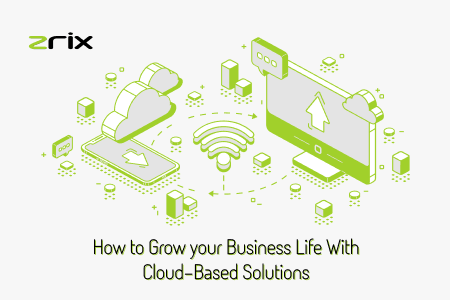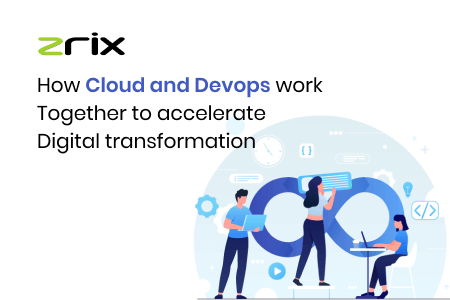Currently, the healthcare industry is driving fast at the 5th gear of innovation and technologies. The industry is witnessing increased usage of new technologies for better security, prescience, accessibility, and affordability.
Today, when discussing technologies and trends changing the healthcare space, we mostly debate on blockchain, AI, IoT, and many more. All these cutting-edge technological innovations are supporting cloud computing, which is currently the biggest technological trend in the healthcare area.
Cloud computing in healthcare made an enormous shift in the storage, sharing, and consumption of medical data. From customary storage to digitalization of healthcare data, the industry has progressed significantly advancing the data management approaches.
In this article, we will tell you the importance of cloud computing in healthcare and how it is reforming the industry!
Quick Navigation
Numerous governments across the globe face various issues in managing the healthcare system. As a result, they continue to look for digitizing their nation's healthcare services.
That's when the role of cloud computing in healthcare comes into action. Cloud computing has changed how medical experts, clinics, and hospitals convey quality, savvy services to their patients.
The challenges of cloud computing in the healthcare industry can be pictured in a superior manner. For instance, managing electronic patient records, healthcare data, integrating social and healthcare data, developing a personal care network while establishing trust and security among medical clinics, dispensaries, and facilities is all possible with cloud technology.
There is a wide range of manners, where this technology is changing the healthcare industry. Today, we will investigate them in brief. However, first, let's discuss -
What is Cloud Computing in Healthcare?
Cloud computing carries out server access through the internet, irrespective of the location to store, manage, and process healthcare data.
It effectively gets settled when custom healthcare software development services provide an adaptable solution for a healthcare organization to remotely access servers wherever the data is hosted.
"From a report by BBC, the market of healthcare cloud computing will reach $35 billion by the end of 2022 at an annual pace of 11.6%."
The cloud benefits both, the patients and providers. From the business point of view, it lowers operational spending while at the same time empowering healthcare providers to convey high-quality and personalized care.
The patients are getting accustomed to the conveyance of healthcare services. Additionally, healthcare cloud computing is uplifting patient engagement by giving them access to their healthcare data for better patient results.
The digital accessibility of healthcare for the providers and patients made the healthcare services access easy, irrespective of their locations.
Also Read: How to Secure Healthcare Data Using Biometrics
If you go deep into cloud computing history, you will see that the term cloud computing is sixty years old. It was first proposed in 1960 when web and mobile technologies were in their early stages.
"In 2009, Google was the first company to begin cloud services. This made cloud computing technology popular worldwide. Later on, Microsoft released Windows AZURE, and other organizations like Oracle and HP with their cloud services joined the healthcare industry."
What Are the Types of Cloud Computing in Healthcare?
Cloud computing is divided into two models: Deployment and Distribution.
By Deployment
- Private – Only one healthcare firm can utilize the cloud office
- Local area – Different healthcare bodies can access the cloud
- Public – The cloud is open for all healthcare partners
- Crossover – The model joins the private, local, and public partners
By Distribution
- Software-as-a-Service (SaaS) – The client deploys their application
- Framework-as-a-Service (IaaS) – The provider provides the operating system and customers deploy their applications
- Platform-as-a-Service (PaaS) – The provider gives operating system, IT infra, applications, and ready to use components
What Are the Advantages and Disadvantages of Cloud Computing in the Healthcare Industry?
Cloud computing is an innovative tech for organizations, taking everything into account. Cloud technology usage in organizations and governments is digitizing their healthcare services.
"Today, cloud computing is a market worth $272 Billion, and by the end of 2025, it will reach $623.3 Billion quickly."
It will change every one of the significant industries; however, the importance of cloud computing in the healthcare industry is more. Below are the benefits of cloud computing in healthcare:
- Better patient care; simple entry to personal care
- Access to personal health mentor
- Expanded integration and adaptability
- Cost-efficient and further developed ROI; Reduces healthcare costs
- Advanced data examination, protection, and data security
- Solid coordination and systems administration among all healthcare providers
- Simple interoperability and further developed collaboration
- Responsibility for by patients; upgraded patient experience
- Solid and simpler telemedicine abilities
Yes, there are benefits, but there lies a few risks of cloud computing in the healthcare industry such as Limited trained professionals, Limited digital ecosystem, Difficulty in reception, and for some people Security risks are additionally a significant challenge.
Also Read: Most Critical Technology Need Across the Healthcare
What is the Future of Cloud Computing In the Healthcare Industry?
The Healthcare industry is probably the second biggest and greatest industry embracing cloud computing globally. Henceforth, it is critical to know what results from cloud computing will escalate the healthcare industry for mankind.
"According to the reports, the market of cloud computing in the healthcare industry will have a hold of $55 Billion by 2025."
The outcomes of COVID-19 strengthened this industry. Pretty much every industry in the Coronavirus pandemic era got ups and downs, yet the healthcare industry using technologies developed at a frenetic pace.
The Healthcare industry is running on cloud computing technology because of the cloud's remarkable features such as collaboration, scalability, reachability, efficiency, and security.
Cloud computing is the mix of quickly developing technologies like top Artificial Intelligence Services, Big Data Analytics, and the Internet of Medical Things; further developing efficiencies and opening different roads of smoothing out healthcare services worldwide.
At ZRIX, we make healthcare solutions calculating all risks and challenges related to healthcare cloud projects. If you are interested in making your healthcare software, fitness app, or healthcare wearable device, then, go ahead and get in touch with us!



